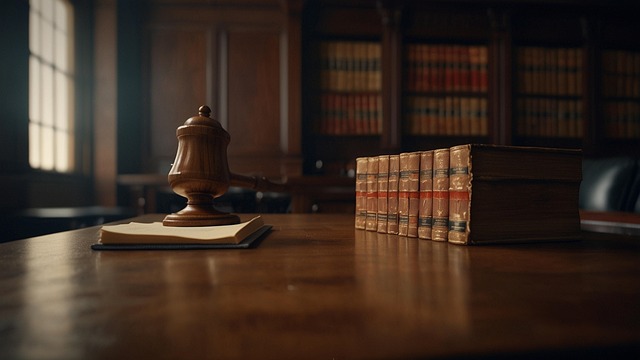Class action lawsuits empower individuals to band together against larger entities, seeking significant compensation from class action lawsuits through a lead plaintiff who simplifies negotiations and can lead to substantial settlements or verdicts. Criminal law enforcement plays a crucial role in securing this compensation through meticulous investigations and strategic legal approaches, aiming to hold wrongdoers accountable and rebuild public trust. Understanding damage types is key in assessing victim compensation from class action lawsuits, including compensatory (restoring victims to pre-incident state) and punitive (punishing perpetrators) damages. Complex criminal cases often lead to such lawsuits, with successful prosecutions ensuring fair restitution for victims of systemic issues or large-scale crimes. Case studies show the profound impact of these lawsuits in achieving compensation from class action lawsuits, with strategies leading to substantial financial redress and deterring future misconduct.
“Criminal law enforcement plays a pivotal role in protecting citizens and ensuring justice. This article delves into the intricate world of class action lawsuits, exploring their potential for compensation from criminal activities. We dissect the process, from understanding complex legal strategies to navigating the journey towards settlement.
Learn about various damages, their impact on victims, and successful real-world cases. By examining these aspects, we uncover how effective class actions can bring justice and substantial compensation.”
- Understanding Class Action Lawsuits: A Comprehensive Overview
- The Role of Criminal Law Enforcement in Recovering Compensation
- Types of Damages and Their Impact on Victims' Compensation
- Navigating the Legal Process: From Filing to Settlement
- Case Studies: Successful Class Actions and Their Outcomes
Understanding Class Action Lawsuits: A Comprehensive Overview

Class action lawsuits are a powerful legal tool where individuals with similar claims join forces to take on larger entities or organizations. This collective approach allows for more significant compensation from class action lawsuits, ensuring that each member receives a fair share of any damages awarded. Unlike individual lawsuits, which can be time-consuming and costly, these cases pool resources and expertise, making them an efficient way to hold wrongdoers accountable. By consolidating numerous claims into one, the process streamlines legal procedures, enabling plaintiffs to access justice more effectively.
In these suits, a class representative or lead plaintiff is appointed to speak on behalf of all members. This strategic move simplifies negotiations with defendants, as corporate and individual clients alike face a unified front. As a result, class action lawsuits often lead to substantial settlements or verdicts in jury trials, achieving extraordinary results for all involved. The potential for collective compensation from class action lawsuits has become increasingly important, especially when addressing widespread consumer rights violations or environmental injustices.
The Role of Criminal Law Enforcement in Recovering Compensation

Criminal law enforcement plays a pivotal role in facilitating the recovery of compensation from class action lawsuits. Through diligent investigation and robust legal strategies, law enforcement agencies help ensure that wrongdoers are held accountable for their actions and that victims receive the financial redress they are entitled to. This process is crucial not only for achieving justice but also for fostering trust within the philanthropic and political communities, as it demonstrates a commitment to protecting citizens’ rights and promoting fairness.
Effective criminal law enforcement in class action cases involves navigating complex legal landscapes and often requires specialized knowledge of various procedural mechanisms. By leveraging their expertise and resources, law enforcement agencies can secure substantial compensation, enabling victims to access the means to heal from their experiences. This not only facilitates individual recovery but also contributes to broader societal healing, as it sends a powerful message that achieving extraordinary results in justice is a shared responsibility.
Types of Damages and Their Impact on Victims' Compensation

In criminal law enforcement, understanding the types of damages is crucial when assessing compensation for victims. Damages can be categorized into various forms, each with its unique impact on the victim’s recovery. Compensatory damages are intended to restore the victim to their pre-incident state, covering medical expenses and lost wages. Punitive damages, on the other hand, aim to punish the perpetrator and deter future misconduct, often awarded in high-stakes cases across the country where the defendant’s actions were particularly egregious.
Additionally, punitive damages can serve as a form of compensation from class action lawsuits, providing financial relief for victims who have suffered significant harm due to systemic issues or large-scale crimes. An unprecedented track record of successful prosecutions ensures that victims receive fair and adequate compensation, fostering justice and accountability in criminal cases.
Navigating the Legal Process: From Filing to Settlement

Navigating the legal process involved in criminal law enforcement is a complex journey, especially when it comes to securing compensation from class action lawsuits. These cases, often stemming from white-collar and economic crimes, can have far-reaching implications for both individuals and philanthropic and political communities. The initial step involves filing a lawsuit, where detailed evidence and legal arguments are presented to establish liability and damages. This process requires meticulous attention to detail, as it sets the foundation for the entire case.
As the case progresses, courts will carefully examine the facts and applicable laws, leading to various outcomes. A settlement is among the possible resolutions, offering a form of compensation from class action lawsuits to affected parties. This alternative to a full trial allows for a more efficient distribution of resources, ensuring that those harmed by criminal activities receive some level of redress. The respective business interests and community welfare are considered in these negotiations, aiming to balance justice and economic impacts.
Case Studies: Successful Class Actions and Their Outcomes

Case studies offer powerful insights into the effectiveness of class action lawsuits within criminal law enforcement. By examining successful cases, we uncover strategies that have led to significant compensation for affected individuals. For instance, a landmark lawsuit against a major corporation involved a challenging defense, but the plaintiffs’ relentless pursuit of justice resulted in a groundbreaking settlement. This victory not only provided substantial financial redress but also served as a powerful deterrent, reshaping corporate practices.
These class actions often involve complex legal battles, and attorneys play a pivotal role in achieving extraordinary results. Through meticulous research, strategic planning, and passionate advocacy, lawyers secure winning challenging defense verdicts, ensuring their clients receive the compensation they deserve. Such outcomes highlight the impact of well-executed legal strategies in addressing criminal law issues on a widespread scale, bringing about positive change and holding wrongdoers accountable.
Class action lawsuits play a pivotal role in ensuring justice and fair compensation from class action lawsuits for victims, especially in cases involving criminal law enforcement misconduct. As illustrated through various case studies, these collective legal actions have successfully brought about significant outcomes, holding wrongdoers accountable while offering much-needed relief to affected individuals. Understanding the intricate process, from recognizing damage types to navigating the legal landscape, empowers victims to seek the redress they deserve. By delving into these strategies, individuals can better grasp their rights and actively participate in securing justice within the criminal law enforcement system.






